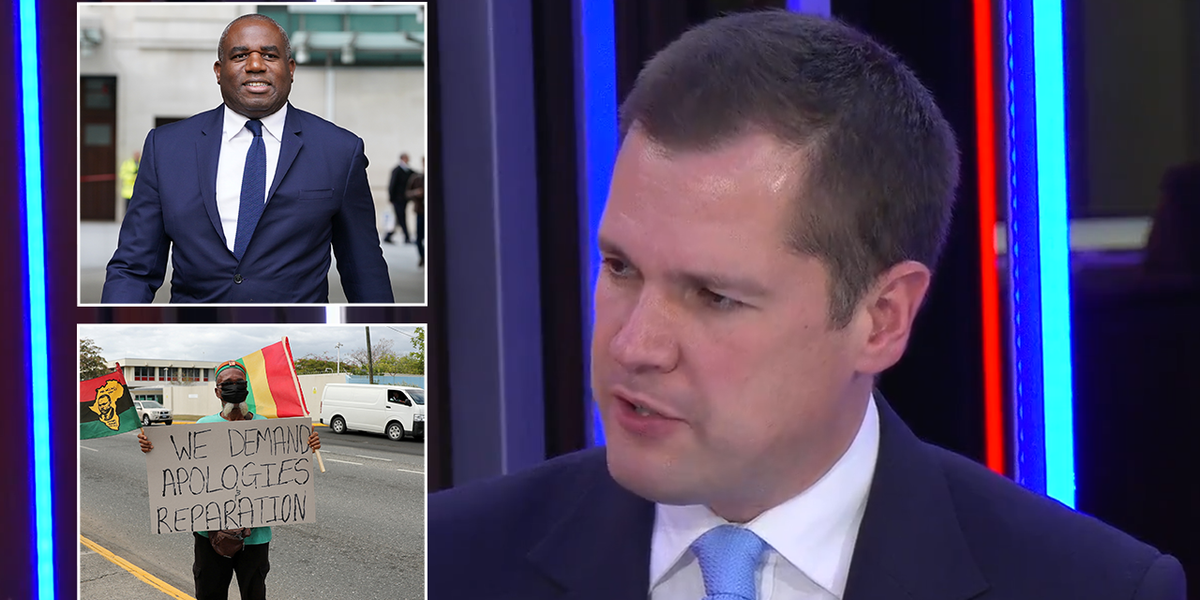Robert Jenrick’s Stance on Reparations: A Controversial Debate
In the realm of British politics, few topics ignite as much passion and division as the issue of reparations for historical injustices. Recently, Tory leadership hopeful Robert Jenrick has made headlines by vocally opposing calls for the UK to pay £200 billion in reparations, particularly in response to Foreign Secretary David Lammy’s advocacy for such measures. Jenrick’s comments, made during an interview with GB News, have sparked a significant debate about Britain’s colonial past and its responsibilities in the present.
Jenrick’s Firm Rejection of Reparations
During his appearance on GB News, Jenrick was unequivocal in his stance against reparations. When asked if Britain should contribute financially to countries like Barbados, he responded with a resounding "No. Absolutely not." This strong rejection reflects a broader sentiment among certain factions of the Conservative Party, who argue that the UK should not be held accountable for historical actions that occurred centuries ago.
Jenrick articulated his pride in Britain’s history, emphasizing that the nation played a pivotal role in abolishing slavery 200 years ago. He pointed out that British sailors fought against the slave trade while other nations continued to perpetuate it. This narrative of historical pride is a cornerstone of Jenrick’s argument, as he believes that the focus should be on future collaboration with allies rather than reparative payments.
Criticism of David Lammy’s Approach
Jenrick’s comments were not just a defense of his own views but also a pointed critique of David Lammy. He accused the Foreign Secretary of prioritizing the interests of other countries over those of the UK, stating, "David Lammy seems to always put other countries’ interests first." This criticism was particularly directed at Lammy’s decision to return the Chagos Islands to Mauritius, a move Jenrick described as "an act of self-harm."
The tension between Jenrick and Lammy highlights a broader ideological divide within British politics regarding foreign policy and historical accountability. While Lammy advocates for reparations as a means of addressing past injustices, Jenrick’s approach emphasizes national pride and self-interest.
The Conservative Party’s Position
Jenrick’s remarks come at a time when the Conservative Party is grappling with its stance on reparations. Downing Street has already ruled out the possibility of the UK paying reparations, a decision that aligns with Jenrick’s views. However, this position may lead to friction with other nations, particularly during events like the Commonwealth Heads of Government Meeting (CHOGM), where discussions on reparations are likely to arise.
Interestingly, all three candidates vying to succeed Patricia Scotland as CHOGM secretary general have expressed support for reparations, indicating a potential clash between the Conservative Party’s leadership and the broader Commonwealth sentiment.
Economic Considerations and Foreign Aid
In addition to his views on reparations, Jenrick also outlined his plans for reducing the tax burden on Britons. He proposed cutting the foreign aid budget, arguing that funds currently allocated to countries like India could be better spent on strengthening the UK’s defense capabilities. This perspective reflects a growing sentiment among some politicians that the UK should prioritize its own national interests over international commitments.
Jenrick’s assertion that the UK cannot afford to maintain a depleted armed forces while simultaneously funding foreign aid underscores a pragmatic approach to governance. He believes that reallocating resources from international aid to defense is essential for protecting British interests both at home and abroad.
Conclusion: A Divisive Issue
Robert Jenrick’s outspoken opposition to reparations and his critique of David Lammy encapsulate a significant debate within British politics. As the country navigates its colonial legacy and the implications of historical injustices, the conversation around reparations will likely continue to evolve. Jenrick’s firm stance reflects a desire to prioritize national pride and self-interest, while others, like Lammy, advocate for a more reconciliatory approach that acknowledges past wrongs.
As the political landscape shifts and the Tory leadership race unfolds, the issue of reparations will remain a contentious topic, challenging politicians to balance historical accountability with contemporary national interests. The outcome of this debate will not only shape the future of the Conservative Party but also influence Britain’s role on the global stage.
